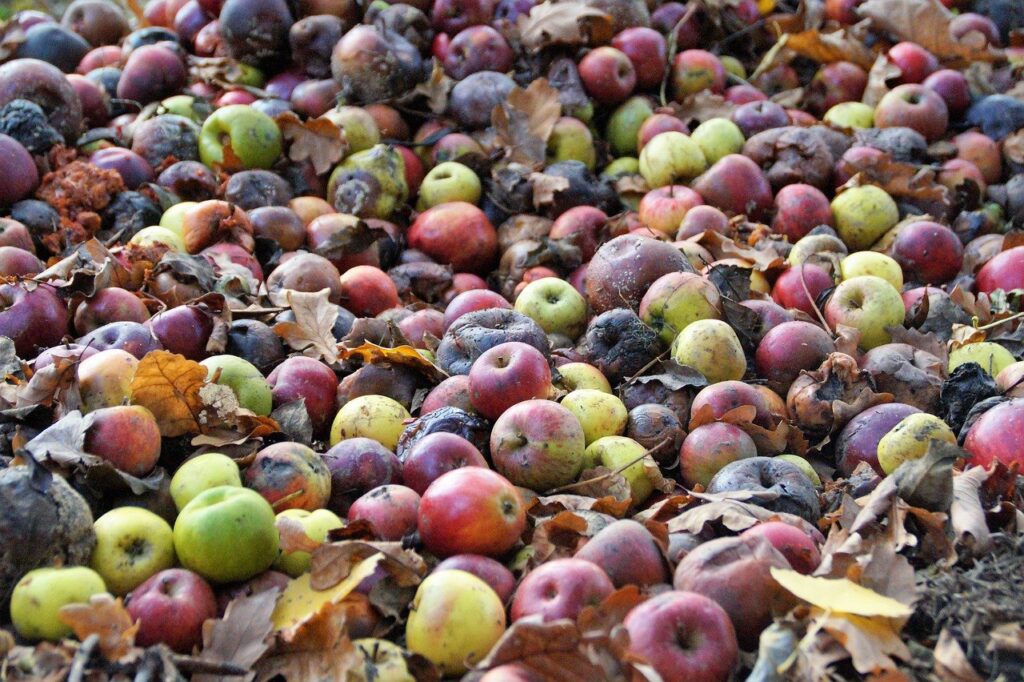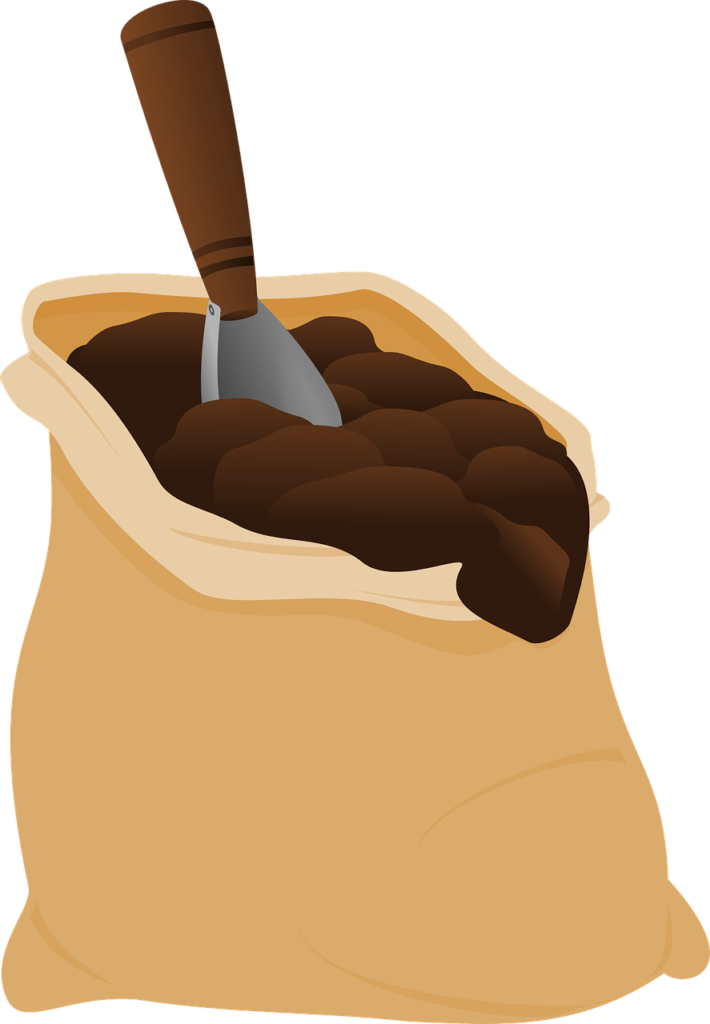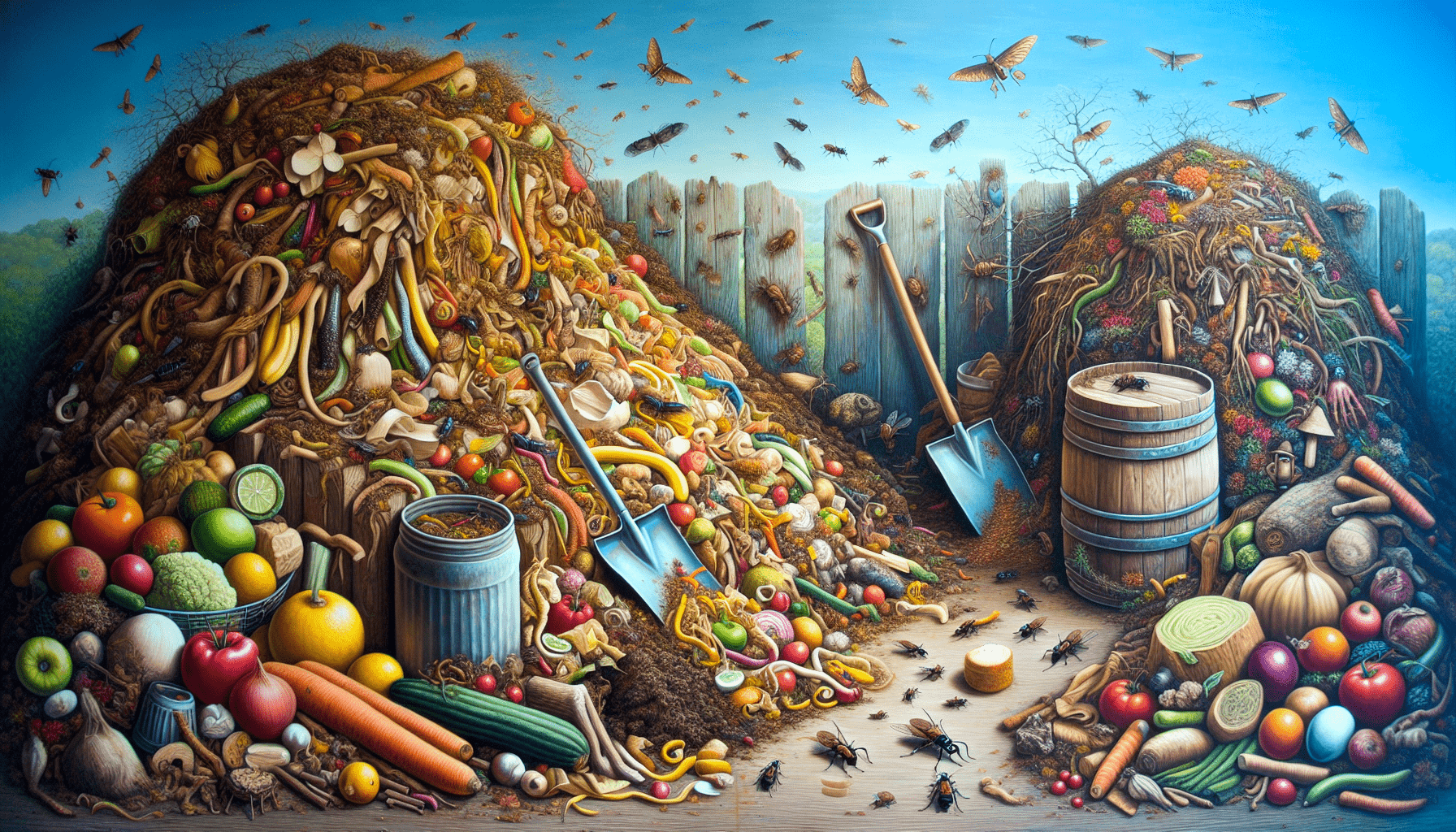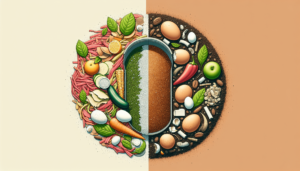Have you ever wondered what composting is and how it actually works? Well, we’ve got the answers for you! Composting is a natural process that involves breaking down organic materials, such as food scraps and yard waste, to create nutrient-rich soil. It’s like nature’s recycling system, where microorganisms, worms, and other creatures work together to turn waste into something beneficial for our gardens and plants. In this article, we’ll take you through the fascinating world of composting and explore how it all comes together. Get ready to discover the wonders of this eco-friendly practice!

What is composting?
Definition of composting
Composting is a natural process in which organic materials, such as food scraps, yard waste, and other biodegradable materials, are broken down and transformed into a nutrient-rich soil amendment called compost. This process occurs through the action of microorganisms, such as bacteria and fungi, as well as larger decomposers like worms and insects. Composting is often referred to as “nature’s recycling,” as it mimics the natural decomposition processes that occur in forests and other ecosystems.
Importance of composting
Composting plays a crucial role in promoting environmental sustainability and reducing waste. Rather than sending organic materials to landfills, where they may produce harmful greenhouse gases as they decompose in the absence of oxygen, composting allows these materials to be diverted, recycled, and utilized to enrich soil and support plant growth. By composting, we can significantly reduce the amount of waste that goes to landfills and contribute to a healthier planet.

How does composting work?
The basics of composting
Composting involves creating an environment that encourages the rapid breakdown of organic matter into compost. This process relies on several key factors, including the right mix of organic materials, moisture, oxygen, and temperature. When these conditions are met, microorganisms and decomposers thrive, breaking down the organic matter into its simplest components.
Materials for composting
A wide range of organic materials can be composted, including fruit and vegetable scraps, coffee grounds, yard trimmings, leaves, straw, plant-based materials, and even some paper products. However, certain materials, such as meat, dairy, and oily substances, should be avoided as they can attract pests, generate foul odors, and slow down the composting process. It’s important to strike a balance between carbon-rich materials, known as browns, and nitrogen-rich materials, known as greens, to create an optimal composting environment.
Process of composting
Composting can be achieved through several methods, but the basic process remains the same. It begins by layering organic materials, ensuring a good mix of browns and greens. Moisture is added to maintain a damp but not overly wet environment. Next, the pile needs to be turned or aerated periodically to provide oxygen to the microorganisms involved in the decomposition process. A sufficient amount of oxygen is vital to prevent anaerobic conditions, which can lead to unpleasant odors and slow down composting. As the organic matter decomposes, heat is generated, and the temperature inside the compost pile rises. This heat helps accelerate the breakdown of the materials and kill some pathogens and weed seeds.
Factors affecting composting
Several factors can influence the speed and effectiveness of the composting process. These include the carbon-to-nitrogen ratio of the materials, the size of the organic matter particles, the moisture level of the compost pile, and the oxygen availability. Achieving a balanced carbon-to-nitrogen ratio, also known as the C/N ratio, is crucial for composting success. A ratio of around 25-30 parts carbon to 1 part nitrogen is commonly recommended. Additionally, maintaining the right moisture level, typically around 40-60%, ensures that the microorganisms stay active without drowning or drying out. Regularly turning or aerating the compost pile provides the necessary oxygen that the decomposers need to thrive.
Types of composting
Composting can be done through various methods, allowing individuals to choose the technique that suits their needs and available resources. Some common types of composting include backyard composting, vermicomposting, in-vessel composting, and windrow composting. Backyard composting involves creating compost piles in our own backyards using a combination of kitchen scraps and yard waste, making it a convenient and affordable option for many. Vermicomposting utilizes earthworms to assist in the decomposition process, resulting in high-quality worm castings or vermicompost. In-vessel composting utilizes containers or enclosed systems to create compost, controlling the environmental conditions more effectively. Windrow composting is often used on a larger scale, where long rows or windrows of organic materials are turned and managed to create compost.
Benefits of composting
Composting provides numerous benefits, both for the environment and individuals. From an environmental perspective, composting helps divert organic waste from landfills, reducing the production of harmful methane gas, a potent greenhouse gas. Compost serves as a natural fertilizer, enriching the soil with essential nutrients and improving its overall health and structure. It enhances water retention and drainage capabilities, reduces erosion, and supports the growth of healthy plants. Composting can also help reduce dependency on synthetic fertilizers and pesticides, contributing to sustainable agricultural practices. Moreover, by reusing organic materials and returning them to the Earth, we actively participate in closing the nutrient cycle and restoring balance to ecosystems.
In conclusion, composting is a natural and sustainable process that transforms organic materials into nutrient-rich compost. It offers a myriad of environmental benefits and promotes a healthier and more sustainable approach to waste management. By understanding the basics of composting, utilizing the right materials, and maintaining the necessary conditions, we can all contribute to the reduction of waste and the creation of a more sustainable future. So let’s grab our kitchen scraps, turn them into compost, and make a positive impact on our planet!




